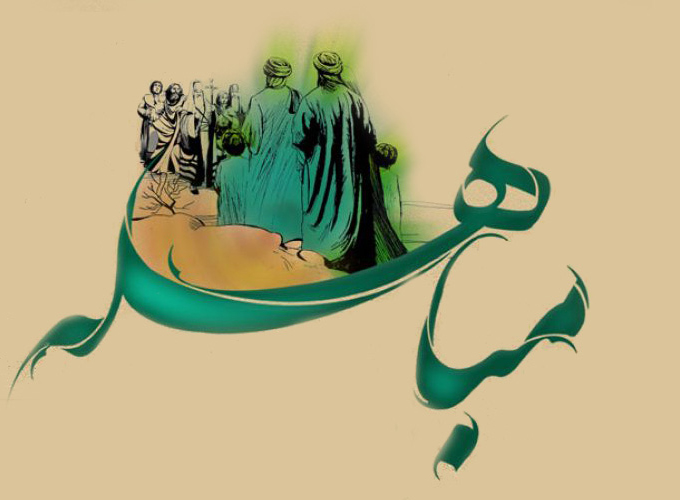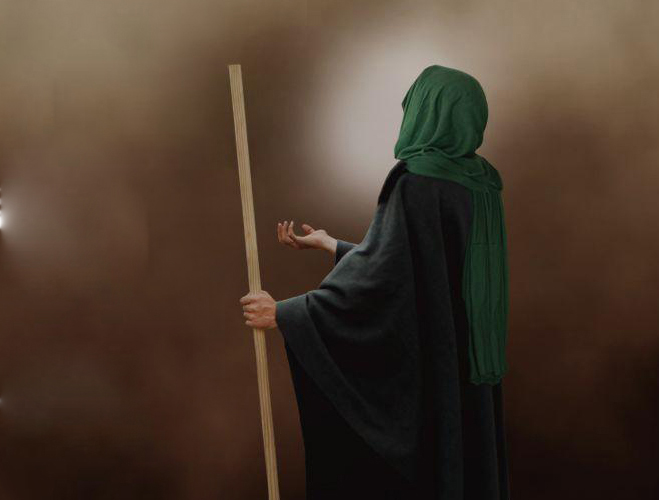After the Najran group agreed on paying an amount of taxes (Jizyah) to the prophet (pbuh), they asked him to write that in a letter and guarantee their security. So, the prophet (pbuh) asked the Commander of the Faithful (Al Imam Ali) to write a letter as follows:
In the name of God, this what the prophet Mohammad (pbuh) wrote for Najran and their people who are obliged to obey him regarding every fruit, gold, copper and slaves but he favored them and forgive them if they pay the following: two thousand garments each valued in an ounce (Hilal Al Awaki), one thousand garment per every Rajab month and one thousand garment per every Safar month. Each garment values one ounce. If the value increases or decreases, they will be accounted for. If the number of armors, horses, camels or offers increases or decreases, will be taken from them and they will be accounted for.They should pay for every war in Yemen 30 armors, 30 horses, and 30 naked camels guaranteed for them. Najran people should host my messengers for a month or less, so they be rewarded by nearness to God and the guardianship of Mohammad the messenger of God, of themselves, people, lands, money, trade, and monasticism for not taking tinth parts, not eating from the money of usury (Al Riba: moneylending), or trade with it. But he who eats from Al Riba money will not get my guardianship.[1]
The Greatest Feature:
The cursing incident and what was revealed about it in the Quran is considered as the greatest feature that supports the position of the Shiites throughout history because the words of the revealed verse and its vocabulary in the cursing show the status and position of those whom the Messenger of God (pbuh) has invoke curse through, those whom the Shiite consider as their leaders.
This verse considers Al Hasan and Al Husein the sons of the Messenger of God (pbuh) and considers Fatima Al Zahraa the only woman connected to the Messenger of God (pbuh) and whose title “Our Women” is valid on. The prophet describes Al Imam Ali by “ourselves”. According to that verse, he (as) was that great personality that occupies the same rank of the Messenger of God (pbuh). Which feature may be greater and better than being in the same rank of the prophet?”[2]
Isn’t this verse an honest proof for the priority of the Commander of the Faithful (as) over all muslims?
Al Fakher Al Razi, whom all people know his style in verbal prompts and attitudes towards the affairs related to the Imamate, mentioned the Shiite inference by this verse. Then, he added a little objection that doesn’t hide his response to the leaders of science and people of knowledge.
It is understood from the hadiths reported from the Imams of the prophet’s family that mubahala (cursing) is not specific to the Noble Prophet, rather it is permissible for every Muslim to invoke curse about religious issues with those who disagree and argue with him regarding any topic. The method of mubahala and the specific supplication for it were mentioned in the books of hadith. You can review the book “The Light of the Two Weights” (Hadith Al Thaqalayn)” to know more about it. [3]
The Leader of the Messengers (pbuh), Ayatollah Al Sheikh Jaafar Sobhani
[1] Fotouh Al-Buldan: pg. 76, Amta’ Al-Asma’: pg. 502 and Al-Alam Al-Ora: pg. 78 and 79.
[2] The Messenger of God (pbuh) relied on this verse when he said: “Ali is from me as myself.”
[3] Nur al-Thaqalayn (The Light of the Two Weights): Part 1, pg. 291 and 292, and also refer to Al Kafi, Part 2, Book of Supplication, chapter of the Mubahala. The Master Al Tabataba’i in one of his letters referred to this subject as well, and considered it one of the eternal miracles of Islam



















